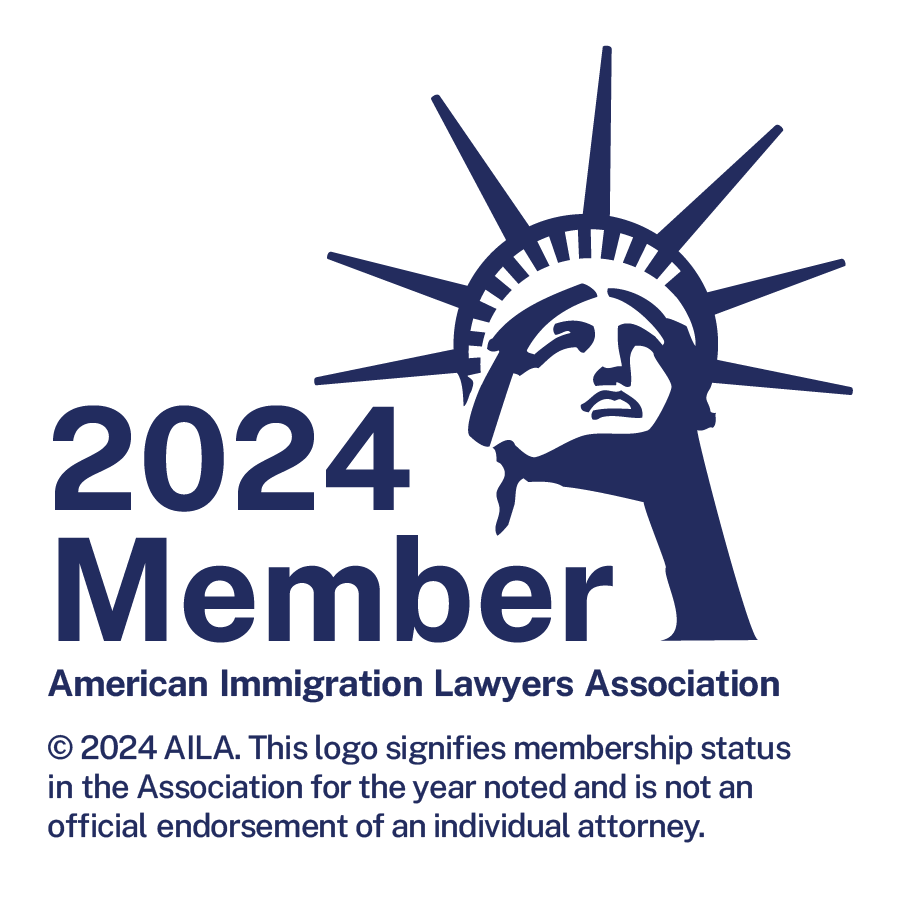Family-Based Immigration (Immigration Petitions to Immediate Relatives/Marriage-based Green Cards)
Family-based immigration, involving marriage-based immigration of spouses and family immigration petitions to immediate relatives, is a process by which individuals can immigrate to another country based on their family relationships with citizens or permanent residents of that country. In the context of the United States, family-based immigration allows U.S. citizens and lawful permanent residents (green card holders) to sponsor certain family members for immigration to the U.S.
There are two main categories of family-based immigration in the United States:
Immediate Relatives: These include spouses of U.S. citizens, unmarried children under the age of 21 of U.S. citizens, and parents of U.S. citizens who are 21 years of age or older.
Immediate relatives are given the highest priority in the immigration process and are not subject to numerical limitations.
Family Preference Categories

Adjustment of Status:
Adjustment of status is the process that the applicant can use to apply for lawful permanent resident status (also known as applying for a Green Card) while present in the United States. This allows the applicant to get a Green Card without returning to their home country to complete visa processing.
Consular Processing:
If the applicant is outside of the United States, the pathway to obtaining the visa abroad is through consular processing. The applicant in this instance, applies at a U.S. Department of State consulate abroad for an immigrant visa in order to come to the United States and be admitted as a permanent resident.
Bars to Adjustment and Waivers:
To qualify for a Green Card, the applicant must be admissible to the United States. Depending on how the applicant entered the United States or if he/she has committed a particular act or violation of immigration law, the applicant will be ineligible to apply for adjustment of status.
United States law allows the applicants to apply for a waiver of inadmissibility or other form of relief such as Form I-601, Application for Waiver of Grounds of Inadmissibility, and Form I-212, Application for Permission to Reapply for Admission into the United States after Deportation or Removal. Once a waiver or other form of relief is granted, an application for a Green Card may be approved.
Whether a waiver or other form of relief is available depends on the specific inadmissibility ground(s) that applies to you and the category you are adjusting under. Eligibility requirements for waivers and other forms of relief vary.
Practice areas
We offer consultations, representation, assistance and advice in the following areas:
- Employment-Based Immigration (EB-1, EB-2, EB-3, EB-4)
- Investment-Based Immigration (E-1, E-2- EB-5 Immigrant Investor Program)
- Family-Based Immigration (Immigration Petitions to Immediate Relatives/Marriage based Green Cards)
- K-1 Fiancé(e) Visa
- K-3 Visa for Spouse
- US Green Card (Permanent Residence)- Adjustment of Status/Consular Processing
- Replacement of Green Card/Renewal of Green Card
- Permanent Labor Certification (PERM)
- Change of Status and Extension of Status
- TN NAFTA Professionals (Canada/Mexico)
- Visas for Temporary Visitors
- B-1 Temporary Business Visitor Visa
- B-2 Visa (Visiting family and friends, tourism and vacation, medical treatment, transiting the US)
- Crew Visas(C-1/D)
- Deferred Action for Childhood Arrivals (DACA)
- Temporary Non-Immigrant Work Visas (H-1B, L-1A, L-1B, O-1, R-1, P-1A, P-1B, P-2, P-3, Q, H-1C, H-2A, H-2B,H-3, I, E-1, E-2, E-3)
- Form I-9 Compliance
- H-1B Specialty Occupation: H-1B Cap, H-1B Extensions, H-1B Transfers, H-1B Amendments, Cap Exempt H-1B, H-1B for Fashion Models
- H-1B1 Visa for Chileans/Singaporeans
- Registration to H-1B Cap
- Responding to H-1B RFEs
- L-1A Intracompany Transferee
- L-1A New Office
- Hague Adoption Certificate or Custody Declaration
- L-1B Specialized Knowledge
- R-1 Religious worker
- O-1 Extraordinary Ability or Achievements in Sciences, Education, Business, Athletics/Sports and Arts
- EB-1 Extraordinary Ability, Outstanding Professors and Researchers, Multinational Manager or Executive
- EB-2 National Interest Waivers
- Students Visas and Exchange Visitors and Employment (F-1, M-1, OPT, CPT, STEM OPT, J-1, Conrad 30 Waiver Program)
- Refugee/Asylee Relative Petition
- A, G, and NATO Visas and Renewing A, G, and NATO Visas in the United States
- Advance Parole
- Parole under Uniting for Ukraine
- Citizenship for Military Personnel & Family Members
- Immigration Relief for Survivors of Domestic Violence and Other Crimes (VAWA, U visa, T visa)
- Temporary Protected Status (TPS)
- Consular Matters (DS-160, DS-260, Waivers)
- US Citizenship and Naturalization
- Application for Citizenship Certificate
- Application for Naturalization
- Replacement of Citizenship/Naturalization certificates
- Temporary Protected Status (TPS)- Nepal, Nicaragua, Haiti, Honduras, Sudan, El Salvadore, Ukraine, and Afghanistan-EAD and EAD extensions
- Reporting Birth of U.S. Citizens and Non-Citizen Nationals Abroad - Consular Reports of Birth Abroad (CRBA)
- U.S. Citizenship for an Adopted Child
- Renunciation of U.S. Nationality Abroad
Steps to start your
plans off right
01
Select your section
02
Send an enquiry
03
Schedule a Consultation
So, what are you waiting for?
Let's start your process right away! Fill in the form and we'll get back to you.





